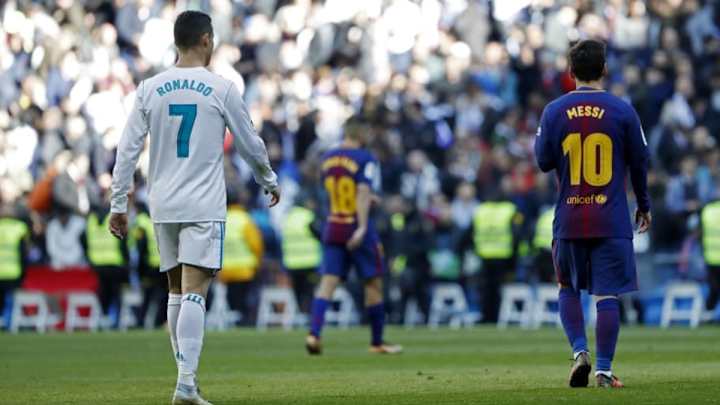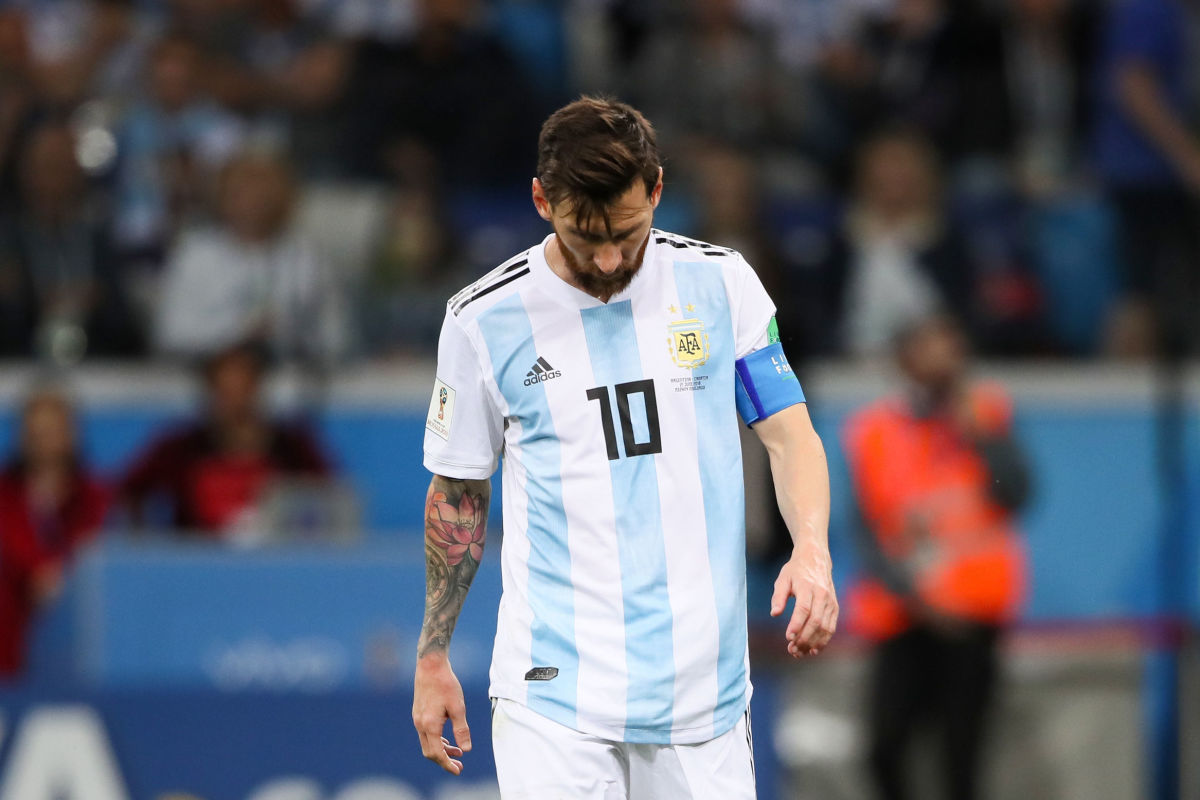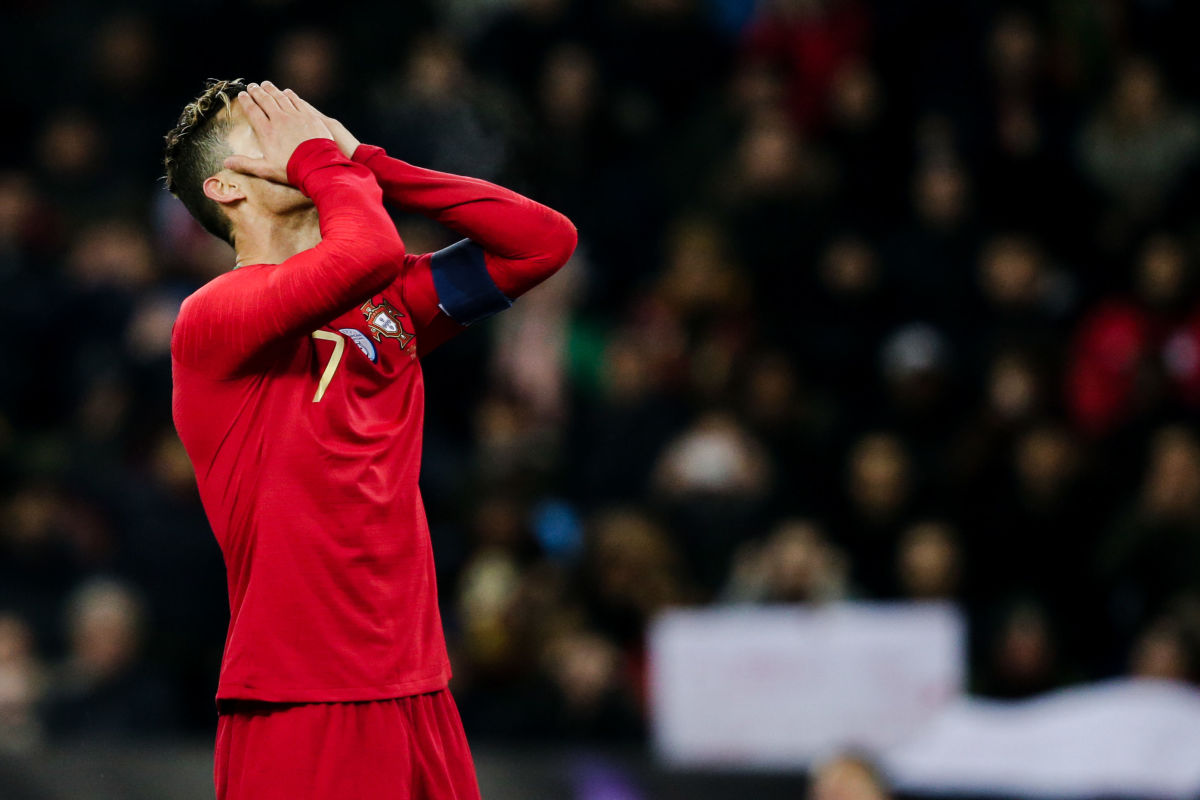Messi vs Ronaldo: The Myth of the One-Man Team & the Overwhelming Importance of Trust

It was all set up so perfectly for a World Cup quarter final to settle the greatest football debate of the modern era. Only France and Uruguay stood in the way of a decisive closing act in the play that has been ongoing for over a decade.
But there was to be no curtain call for Lionel Messi or Cristiano Ronaldo, both eliminated at the last 16 stage by teams whose collective talent outstripped the individual ability of their opponents' talismanic superstars. There were tears in the eyes of both men after yesterday's defeats, perhaps an implicit admission that we will not see them back at the World Cup again.
Neither player is a god, yet the pressure both have had placed upon them is biblical. Both have been tasked with carrying the weight of expectations for an entire nation, thrust into otherwise average teams and told that their individual brilliance can render everything else irrelevant.

But Messi could not be there as Kylian Mbappe cut through the Argentine defence like a knife through butter. Ronaldo was not on hand to block Edinson Cavani's winner on the line. Football is a team sport defined by individuals, but it is a team sport nonetheless. It's a sin to forget that fact, as Argentina manager Jorge Sampaoli did when labelling the rest of his squad "limited" in defence of Messi after the defeat to Croatia.
Portugal's Fernando Santos understands it better. “It's the team that has to play," he said before the match against Uruguay. "If Ronaldo plays alone, we're going to lose." It was this attitude that allowed Portugal to win Euro 2016, even with Ronaldo injured for most of the final. Yet of course, even that victory is mostly used a point scored for Ronaldo in the ongoing debate.
Ronaldo won Euro 2016. But Messi got Argentina to the World Cup final. But Ronaldo has scored more Champions League goals than anyone else. But Messi has scored more La Liga goals than anyone else. On and on it goes, a constant individual duel which seems to matter more than any number of team accolades.

France and Uruguay's victories were both illuminated by the superb individual displays of Mbappe and Cavani, but it was the way they played as a team which got them over the line. France's fourth goal was simply divine, a team move of lightning pace that culminated in Olivier Giroud's incisive pass to Mbappe, and his cool finish.
Uruguay's win was an even greater testament to team ethic. With Cavani off injured and Suarez isolated, Portugal piled on the pressure with cross after cross, but the central defensive partnership of Diego Godin and Jose Gimenez, forged at Atletico Madrid, stood firm.
Two men who played a big part yesterday were Benjamin Pavard and Diego Laxalt. Both won just their eighth cap yesterday, and prior to the World Cup they had a combined total of 14 minutes competitive action for their countries. Pavard began his tournament with a very shaky performance against Australia; Laxalt didn't even start until Uruguay's third group game.
But in the biggest matches of their careers so far, both players showed what they were made of. Pavard scored a goal of the tournament contender at a crucial juncture in France's game; Laxalt showed outstanding composure towards the end of Uruguay's victory.
It's sad that both Messi and Ronaldo are out of the World Cup, but maybe we can now focus on teams and not individuals. Uruguay is a solid squad, and I have a lot of time for Oscar Tabarez.
— Anthony Lopopolo (@sportscaddy) June 30, 2018
What do they have in common? Their managers trusted them, and their teammates trusted them. A successful team must believe that every player in the side is worthy of that trust, regardless of inexperience or poor form. That's how the players learn to trust themselves as well.
Trust was the key facet behind the invention of Total Football, which did away with the idea that players were glued to their rigid positions and couldn't be trusted to carry the ball upfield. The tiki-taka style that Spain used to rule the world between 2008 and 2012 relies on trusting every player to be equally competent on the ball.
The main reason we see so many full backs turning into wingers these days is because they are trusted to run with the ball, and they in turn trust that their teammates will cover for them if they lose it. Goalkeepers are trusted to be so good with their feet that they can act as defenders in an emergency. Everywhere you look in modern football, trust is integral.
Both Ronaldo and Messi go home. Both remain without a goal in the knockout stages of any World Cup. Remarkable for 2 of the games all time greats.
— Gary Lineker (@GaryLineker) June 30, 2018
Both Argentina and Portugal seem to have a complete imbalance of trust. With the choice between a simple pass to Messi/Ronaldo or a more incisive pass to another teammate, they take the easy option every time. They appear to trust their star men so much that it has a detrimental effect on how they perceive their other teammates.
Messi and Ronaldo are worthy of trust, but this is often taken to ridiculous extremes. Both are trusted to take penalties and free kicks for their clubs and countries, but Messi's penalty conversion rate is poor and Ronaldo's free kick record is abysmal. Why do they continue to take them?
Because football has become so obsessed with statistics that every goal scored by Messi or Ronaldo is blown out of proportion. We have become fixated on the quest for objective truth in a sport of subjective beauty that every goal is celebrated not for its relevance to the match, but as ammunition in the never-ending argument.
For what it's worth, I prefer Messi. But I don't prefer him because he has scored 552 goals in 637 games for Barcelona, bleep bloop. I prefer him because at his very best, he makes me smile involuntarily. I prefer him because it gives me more joy to watch him than any other footballer.
Other people feel the same about Ronaldo, as well they might. He's brilliant too, and thinking that he is better than Messi is an entirely valid opinion to have. There is no objective truth in football and we are foolish to keep looking for it.
Obviously we want to see the best players in the world playing at the World Cup, but I have to admit I'm quite glad Messi and Ronaldo are out. We get one month every four years to work out who the best team in the world is. We can spend the four years in between sorting out who the best player is.
